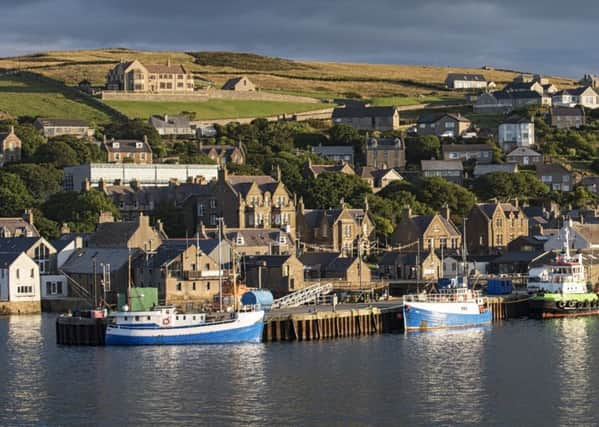Reversing Scottish islands’ falling populations key to their survival, says national plan


Some islanders feel their communities are at risk as youngsters leave to seek opportunities on the mainlans, the National Islands Plan says.
The document has been hailed as a “historic milestone” by the Scottish Government and seeks to address concerns about economic growth, transport and connectivity.
Advertisement
Hide AdAdvertisement
Hide AdThere are 93 inhabited islands off Scotland’s north and west coasts which contribute to the country’s “national identity”, according to the blueprint.
But there have been demands from islanders for years for more recognition from central Government in Edinburgh of local needs and demands.
Population decline is a “real threat” to the sustainability of many island communities.
“Over the last 10 years, almost twice as many islands have lost populations as have gained,” the plan warns.
Projections suggest that Orkney and Shetland face losing 2.2 per cent of their population by 2041 and the Western Isles, 14 per cent.
It adds: “Those from some islands, such as North Ronaldsay, told us they had suffered such extensive population decline that the survival of the island community is at risk.”
Islands minister Paul Wheelhouse said: “The plan is a key milestone but it cannot be allowed to just sit on a shelf. I now look forward to working with colleagues and partner organisations to put the plan into action.
“Through the plan’s development, Scotland is showing our island communities that they are very important to our nation, we care about their futures and that their voices are strong and being heard.”
Advertisement
Hide AdAdvertisement
Hide AdThe lack of availability of transport services along with the cost of travelling both to the mainland and between islands was a major concern raised by inhabitants. They called for better ferry services and more capacity on services which already operate.
The decreasing availability but increasing cost of flights were all flagged up.
“The cost of transport on islands is much higher, relative to income, than in the rest of Scotland,” the report warns.
Tourism is viewed as a vital generator of economic growth for the islands, which in turn attract many visitors to Scotland in the first place.
“It is therefore important that we work with industry and transport providers, both on islands and on the mainland to ensure that tourism continues to flourish and to grow sustainably.”